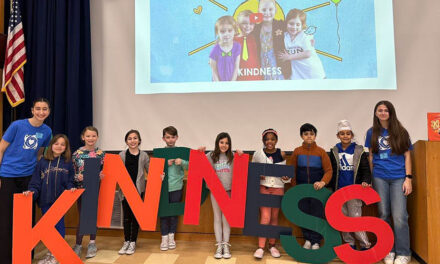Published February 26, 2020
By DAN TOMASELLO
LYNNFIELD — While recycling costs have gone through the roof, townspeople can take steps to improve the town’s program, DPW Director John Tomasz said in an interview last week.
Tomasz attributed the increase in recycling costs to China and India deciding to ban importing solid waste two years ago.
“China used to accept all of the recyclable materials such as plastic, metal, paper, glass, you name it,” said Tomasz. “They have essentially said that they need to have almost perfectly non-contaminated materials. That means they are rejecting almost everything, so 95 percent of recyclable materials now have no place to go. India is no longer taking it as well.”
Tomasz said the town currently disposes trash at either Covanta in Haverhill or Wheelabrator in Saugus. He said the town’s recyclables are brought to GreenWorks in Peabody. He said the town’s contract with JRM Hauling and Recycling expires in June 2021. The town currently spends $25 per ton to recycle materials.
“I have been a DPW director in different places for the past 20 years,” said Tomasz. “Back in the good old days, you were making money on everything you could recycle. It was great. But we have gone from making a good chunk of money to making a little money to making no money to paying to get rid of stuff. We are right now paying $25 a ton to get rid of recyclables. If we went out on the street right now and bid for it, we would be paying $75 to $100 a ton to get rid of recyclables. If we are talking about over a 1,000 tons of recyclables, that is a big chunk of change.”
Tomasz said towns used to make a $40,000 to $50,000 profit on recyclable materials in the past.
“That would cover things such as hazardous waste days that you can offer to residents,” said Tomasz. “You could afford to pick up TVs, refrigerators and bulk items for free because it would cover that expense.”
While the town cannot overturn China and India’s decision to ban solid waste imports, Tomasz said there are steps residents can take to improve the recycling program.
“What is interesting about this town is recycling is not mandatory,” said Tomasz. “So the people who are recycling are doing it because it is the right thing to do. Even though people are trying to do the right thing, between 35 percent and 40 percent of our recyclables are considered contaminated. That means people are not cleaning them right and they are putting in too much stuff that they think can be recycled but actually can’t.”
According to www.recyclesmartma.org, food and beverage cans can be recycled if they are emptied and cleaned beforehand. Plastic bottles, jars, jugs and tubs need to be emptied and the caps have to be replaced before they are recycled. Glass bottles and jars need to be emptied and rinsed before they are recycled. Mixed paper, newspapers, magazines and boxes must be emptied and flattened before they are recycled.
Tomasz said the items that cannot be recycled include plastic bags, plastic wrap, food, liquids, clothing and linens, and tanglers such as hoses, wires, chains and electronics. He said Styrofoam cannot be recycled, but cardboard can be recycled.
“Pizza boxes can be recycled, but you can’t leave stuff inside of them,” said Tomasz.
If residents need to recycle clothes or linens, Tomasz suggested that they bring the items to one of the Bay State Textiles donation boxes that are located outside of all four schools. Proceeds from that program are used to help fund guest speakers and special presentations hosted by the School Department.
Tomasz said the town will be launching an organic recycling program this spring, which he said will be similar to composting.
“We are looking to provide folks with a free bin and free bags to get people going,” said Tomasz. “There are towns that have those types of programs and people are tossing out 10 to 14 pounds of things such as chicken bones and old lettuce every week. If you can get that out of the waste stream, that would help.”
Tomasz also said the DPW is “looking to add different features to the back of Town Hall” in order to help improve the recycling program. He acknowledged that the DPW might start charging fees for large bulk items such as mattresses and box springs, which are currently collected for free.
“It has been a great deal,” said Tomasz. “Most towns charge at least $5 or $10 for bulk items.”
Tomasz said it is “unfortunate that the market is pretty much dead for all recyclable materials.”
“There are towns on the western part of the state that have stopped recycling because it is cheaper for them to have it burnt or buried than recycled,” said Tomasz.
Tomasz said the Recycling Committee hopes to finalize a series of recommendations to improve the program this spring. He said the town was awarded $11,000 in state grants this fiscal year for the purpose of helping improve the program. He said the state grants allowed the town to administer the recycling survey last fall as well as implementing the organic recycling program this spring.
“We are trying to get a better feel of the market,” said Tomasz. “The Department of Environmental Protection is going to have a couple of information sessions in March that will tell us what we are looking at.”
Tomasz said it has become cheaper for communities to get rid of trash than it is to recycle materials.
“The town is currently paying $68 a ton to get rid of trash,” said Tomasz. “If I put out bids for the trash today, they would probably come back between $75 a ton to $80 a ton or maybe a little more. That is still cheaper than the recyclables. The recycling world is upside down.”
When asked if the town could potentially stop offering the recycling program next year, Tomasz said, “It’s too early to tell.”
“I am trying to get involved as much as I can with the DEP to see where they are going because they recognize the problem,” said Tomasz. “I think they are trying figure out a solution because towns can’t afford to take $100,000 hits.”
While the town’s contract with JRM expires next year, Tomasz has met with the company’s representatives in order to “get a better feel of what we can do now to avoid any cost bumps down the road.”
“I feel bad for them because they are caught between a rock and a hard place because they made commitments five to 10 years ago, and what happened with China and India just shocked them,” said Tomasz. “You don’t want to see them go out of business.”
Tomasz noted that the U.S. has started recognizing that recyclable materials needs to be addressed here as opposed to shipping the materials oversees.
“There are some facilities that will be coming on line in the next couple of years, but none of those facilities will be in Massachusetts,” said Tomasz. “I could be totally wrong on this and I hope I am, but in the next five to 10 years, you are not going to see many markets for these products where towns are making money like they used to. I think it will eventually come back, but it will be a whole new system.”
For more information about what can and cannot be recycled, visit https://recyclesmartma.org/smart-recycling-guide/.




